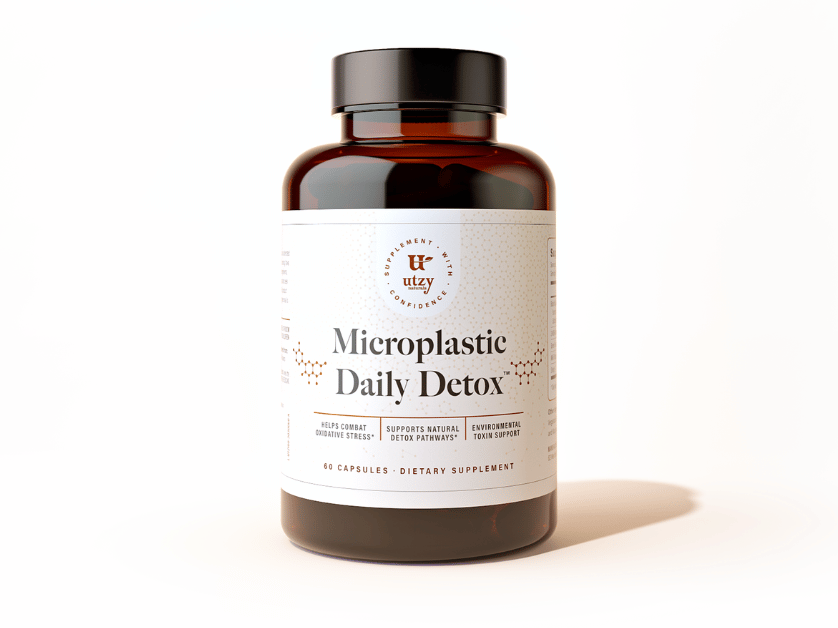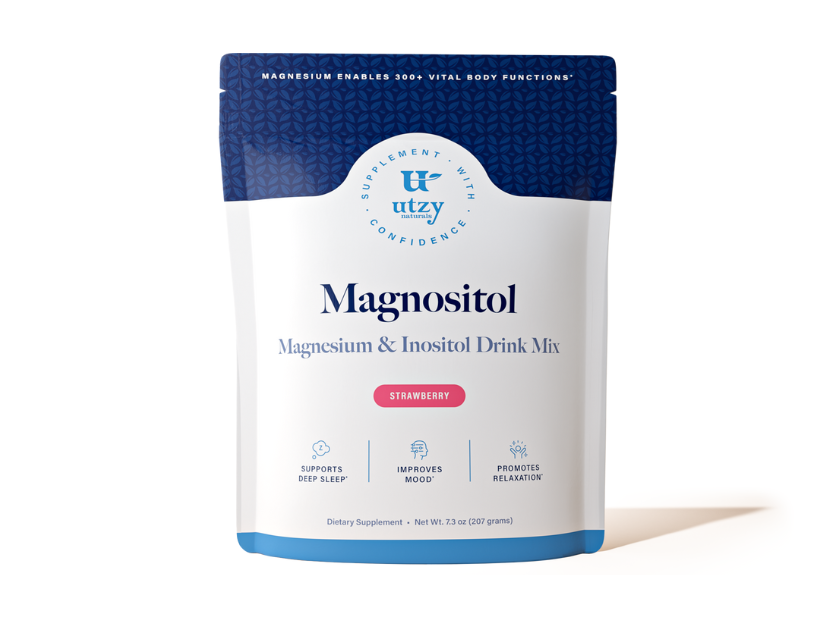shop
learn

The Best Time of Day To Take Fish Oil
February 10, 2021 4 min read
Most people in the US are deficient in omega-3 fatty acids, this is why taking a fish oil supplement is so important.
However, just simply taking fish oil whenever, and however, you remember to take it will not give you the best results.
Taking fish oil at the right time of day is crucial for getting the most out of your supplement.
We’ll detail below the best way to take omega-3 supplements so that you can get the most bang for your buck.

How To Take Fish Oil
If you can, always try to take a fish oil supplement with food. Taking this supplement with a meal not only helps to increase your stomach’s tolerance to its omega-3 fatty acids, but it also helps to increase your body’s absorption of fish oil.
In fact, taking fish oil with a fatty meal is optimal.
Research shows (1) that taking an omega-3 supplement with a fatty meal (approximately 44 grams of fat) can help to increase the absorption of fish oil by up to 300%.
However, you don’t necessarily need to log exactly 44 grams of fat in a meal to reap the potential benefits of fish oil.
A higher-fat meal such as a breakfast of bacon and eggs might only contain around 20 grams of fat, yet it would still help you to better absorb the omega-3 fatty acids in the supplement.
However, if you forget or it doesn’t work with your schedule or you prefer to follow a low-fat lifestyle, other studies have shown that omega-3 fatty acids can still be absorbed when taken without food or dietary fat (2).
This means that your body can still process and absorb fish oil if taken on an empty stomach or with a low-fat meal. It isn't ideal, but you'll still get some benefit.
When To Take Fish Oil
There is no set time that is best for taking fish oil. As long as you remember to take it on a regular basis, you will be getting the most potential benefits out of your fish oil supplement.
While there is no “best time” to take fish oil, keep in mind that it is best to create a routine for taking your supplements.
Taking your vitamins at the same time every day will help you to be more consistent.
Whether it’s during breakfast, at dinner, or right before bed, pick a regular time and stick with it! If you already take other supplements or medications, consider adding your fish oil pill into your current routine.

Things To Be Aware Of When Taking Fish Oil
One thing to be aware of when taking fish oil is to not eat high fiber foods at the same time.
According to the Institute of Medicine, fiber can sequester dietary fat – this may have a neutralizing effect on your fish oil supplement (3).
For instance, if you take both fish oil and fiber supplements, take fish oil at breakfast and fiber at night before bed. This will keep the two supplements from interfering with each other.
Additionally, if you have any medical conditions that affect bleeding or you are on anticoagulant therapy (such as Coumadin), you should discuss fish oil supplementation with your doctor prior to starting.
Omega-3 supplements are generally harmless in these cases, but you may need to limit your dosage.
How To Store Your Fish Oil Supplements
Properly storing your omega-3 supplements is important.
If you store them in a harsh environment, you can end up spoiling your supplement.
You might be able to tell that your fish oil has gone bad if it starts to smell and taste a bit “fishy”, and the capsule or liquid may even turn a different color.
The best place to store your fish oil supplement is in a cool, dark, and dry environment.
Heat and moisture can cause fish oil to quickly oxidize and spoil - so make sure that you don’t store your supplements in your bathroom!
Storing your supplements in the kitchen may be a helpful idea – not only for keeping them in top condition, but also to help you remember to take them at meal time.
Contrary to popular belief, not all fish oil needs to be refrigerated.
While refrigeration can be helpful, if you buy a high quality, natural fish oil supplement, you aren’t required to chill them.
Most fish oil capsules can be held at room temperature without losing their quality, but liquid fish oils generally keep better under refrigeration.
Always remember to keep an eye on the “best by” or expiration date of your supplements. Most fish oil supplements are good for about two years after production.
Additionally, you can often purchase fish oil supplements that contain antioxidants, which help to decrease the chance of rancidity.
Our Omega-3 Fish Oil supplement is shelf stable - so there is no need to refrigerate!
____________________________________________

__________________________________________________________________________________
References:
(1) Lawson LD1, Hughes BG. Absorption of eicosapentaenoic acid and docosahexaenoic acid from fish oil triacylglycerols or fish oil ethyl esters co-ingested with a high-fat meal. Biochem Biophys Res Commun. 1988 Oct 31;156(2):960-3.
4 Responses
Twyla Smith
October 17, 2019
Great article . Luckily I keep mine in fridge 👍
Rahul Dey
October 17, 2019
I wanted to know, should i take fish oil supplements with water?
Ahsan
July 08, 2019
Nice one. I started taking fish oil capsule and found this article informative. Thanks!
Leave a comment
Comments will be approved before showing up.
Also in Health
Subscribe
Sign up to get the latest on sales, new releases and more …
Join the Utzy Naturals Club!
Sign up and get the latest on sales, new releases, and more...








Neomi Dalupere
June 08, 2020
Very informative… Thanks